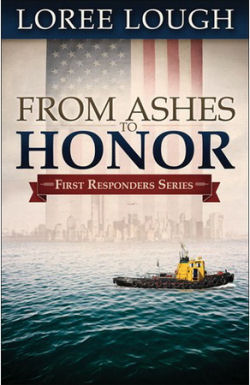|
Dear
Author:
After careful review, our editorial committee is in agreement: The best
use for your manuscript is as a doorstop.
Signed,
John Q. Editor
Dear Author:
We have changed our mailing address in the hope of avoiding future
submissions from you.
Sincerely,
The Editors
Dear Author:
Thank you for your submission. Unfortunately, we are not in need of
fertilizer at this time.
Agents to the Stars
Okay. So maybe I exaggerated. A
tad. But even more pleasant (i.e. generic) rejections can leave us with
the same “Ouch” generated by these examples.
We can lessen the sting by
acknowledging that notables of yore, such as William Golding (Lord
of the Flies), Joseph Heller (Catch-22),
George Orwell (Animal Farm), and Anne Frank, all
received numerous rejections before their manuscripts were snapped up
by the right agent or editor at the right moment in time. Talk to any
of today’s best-selling authors (Grisham, JK Rowling, Judy Blume,
Stephen King, etc.) and they’ll recite their own rejection stories. On
second thought? The old “misery loves company” doesn’t quite cut it
here, does it?
It’d be so
easy to blame “baby editors” whose college degrees prepared them for
careers in psychology, marine biology, or Internet technology for not
knowing the difference between a potential best-seller and a
“wallbanger.” Or the long list of agents who only decided to become
agents after coping with rejection themselves? Because really, how can
either truly relate to a good story? Sadly, thoughts like that might
lessen the sting of our own rejections, but only temporarily. Because
when all is said and done, their decisions—however immature or
off-target we tell ourselves they are—have a direct (and sometimes
lasting) impact on our careers. Some of us take rejection in stride.
Others need days (and days) to recover from the
disappointment of hearing “Thanks, but no thanks.”
We’ve all heard about authors
who, fresh out of high school, submit their first attempt at writing
and presto-change-o, it’s an instant hit. Same goes for those
one-book-wonder types whose first and only books become best-sellers and
major motion pictures. When memories like that hit on the heels of a
rejection letter, my advice is simple and straightforward: Get busy
doing something—anything—else (preferably something related to your next
submission), toot-sweet! Because comparisons like that breed discontent
and resentment, which will spill onto the pages of your next story, and
lead to yet another rejection.
If
you (to quote a line from an old ’40s hit) “…pick yourself up, dust
yourself off, and start all over again,” you will eventually earn those
coveted contracts. Why? Because instead of taking the Charlie Brown
approach (no, no…not that Charlie Brown; the one in
the ’60s tune, who whimpered “Why’s ever’body always pickin’ on me?”),
your energies will focus on why your story invited a rejection:
|
•
Did I send it to the right editor at the right company?
• Did I overlook typos and misspellings?
• Did I properly motivate my characters, and were they believable?
• Did the agent/editor recently accept a project with a too-similar
story line?
• Did I write the story too long or too short for the intended
genre/line?
Sometimes, the answers to those
questions can be found in the rejection, itself; on occasion, editors
and agents sense enough potential in the story and/or the voice of the
writer to inspire useful suggestions, such as “The main character
wasn’t sympathetic enough” or “Too much narrative, not enough
dialogue.” Even annoyingly vague explanations like “The story just
didn’t ‘do it’ for me” or “Sorry, couldn’t get ‘into’ this one” have
clues written between the lines. Getting to the bottom of the good
advice and the hazy hints keep us focused on the story and writing,
rather than on the rejection. In time, that “Got it!” moment will dawn,
and as we incorporate those ideas into our manuscripts, we’re more
confident about resubmitting—and re-resubmitting—until
we land on that perfectly timed moment when editor/agent and story clicks.
Ah, but that’s a beautiful
sound. And in the meantime . . .?
Years ago, after I’d groaned
and moaned a rejection, a writer pal sent me a gift that put it all
into perspective. On the front of the T-shirt, a fuzzy rendition of the
Titanic. And on the
back, in big bold letters: IT SANK. GET OVER IT. Laughing, I slipped it
on and went straight to my office, where I gathered up all the
rejection slips I’d earned over the years. There are between 400 and
500 of them in that fat manila folder. And you know what? The number
doesn’t depress me. Rather, it inspires. Because it’s black-and-white
evidence that I’m actively working toward publication . . . and have
been for years! (Can’t get rejected if you don’t submit, right?)
So next time a rejection
arrives in your inbox, take heart, and see it for what it is: a
stepping stone toward the newspaper story featuring you,
the publishing world’s next “overnight success.”


|








